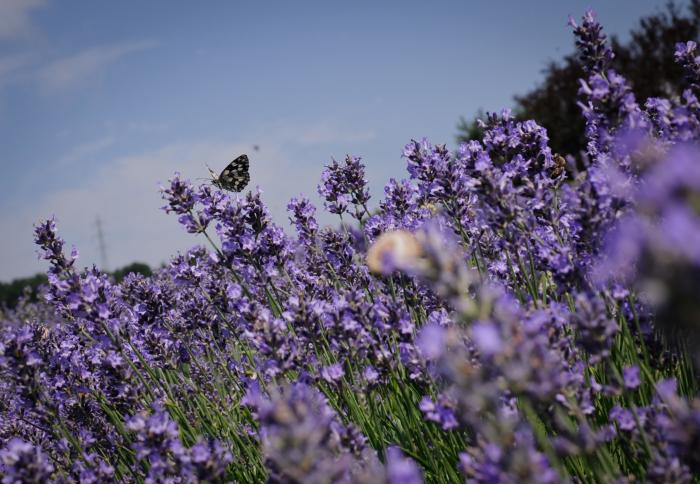
Slovenia’s Karst (Kras) region is characterized by dry, rocky terrain with sparse vegetation - a landscape baked by the sun in the summer and buffeted by cold bora winds for much of the rest of the year. The area reminds many visitors of France’s High Provence, and in recent years, that impression has been reinforced by a typically Provencal plant that has become increasingly common throughout the Karst: lavender.
For decades, households in the Krast grew lavender bushes and used the plant to drive away clothes moths. Large-scale production of lavender was nonexistent, however, until a chemist named Milko Novič made a fateful business trip to the Australian island of Tasmania. There, lavender has been grown commercially for more than a century. While observing the Tasman lavender fields, Novič realized that the dry, rocky terrain of his native Karst was ideally suited for the cultivation of lavender.
In 2002, he planted his first fields of lavender. Local residents viewed his experiment with suspicion, but the project turned out to be a success. The lavender found ready buyers, and Novič was able to increase his output every year. Other entrepreneurs were encouraged by the high demand and began to grow their own lavender. Some created cooperatives to market soap, candles, tea, air fresheners, and even desserts made of lavender. In an era where consumers were becoming increasingly wary of products that contained chemicals and artificial ingredients, the all-natural lavender took Slovenia by storm.
Patches of lavender are becoming an increasingly common sight throughout the Karst, and some villages now hold fetes during lavender picking time. Some 30,000 lavender plants are estimated to grow in the area. To small villages affected by an exodus of young people to the cities, lavender represents an exciting new source of income. In fact, the plant has proven to be so perfectly suited to the local terrain that it’s now joining prosciutto (air dried ham) and Teran wine as an iconic product of this unique Slovenian region.

































































